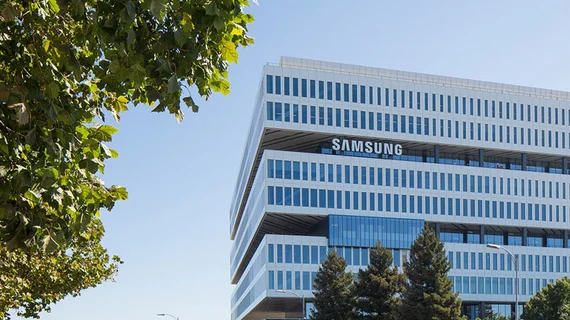Samsung to acquire ultrasound artificial intelligence firm Sonio for more than $92M
Samsung has reached a deal to acquire France-based ultrasound artificial intelligence firm Sonio SAS for $92.4 million, the two companies announced Wednesday.
Under the agreement, the buyer will acquire all shares of the software company. Founded in 2020, Sonio offers products to aid physicians in assessing and documenting OB/GYN scans, such as prenatal ultrasounds.
In August, the company earned U.S. Food and Drug Administration clearance for Sonio Detect—a software that allows sonographers, surgeons and other providers to perform fetal ultrasounds in real time.
“We have great respect and admiration for what the Sonio team has built in the area of maternal care,” said Yong Kwan Kim, CEO of Samsung Medison, the ultrasound division of Samsung Electronics, said in a statement. “Collaboration with Sonio will bring together best-in-class ultrasound AI technology and reporting capabilities to bring a paradigm shift in the prenatal ultrasound exam,” Kim added later.
Closing the deal is still subject to regulatory approvals, including from the French Ministry of the Economy and Finance. Upon its completion, Sonio will remain an independent company headquartered in Paris, making products compatible with all ultrasound device-makers.
“Samsung Medison’s established global ultrasound business combined with Sonio’s advanced AI creates an exciting growth opportunity for both sides,” Sonio CEO Cécile Brosset said in the announcement.

